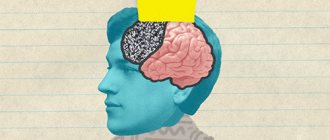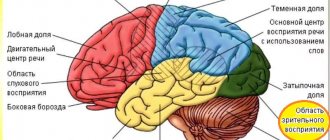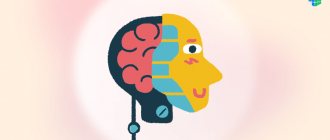The brain, like muscles, can adapt to stress. And those things that you do often become routine. How to train him? The main rule is to give the brain unusual, new information. Thanks to this, new neural connections will be formed, and the brain will develop. Here are some exercises you can use to do this.
Sweet doping: how sugar affects brain function
Change your image and make a rearrangement
The brain gets used to the environment - the arrangement of furniture in the house and objects on the desktop, the reflection in the mirror and a set of familiar clothes. It is not necessary to carry out major repairs and radically change the appearance. It is enough, for example, to periodically make small redevelopments and, in order to “shake up” perceptions, try new things in clothes.
Photo: istockphoto.com
How to train long-term memory?
To train long-term memory, similar exercises are used, aimed at storing data for a longer time. An effective method is constant repetition of information. Learn poems or special materials for work and study by heart. It doesn’t matter what, the main thing is the process of concentrating on what you are learning. For better assimilation, speak the information out loud and in your head.
Here are some exercises that will help you develop your long-term memory:
- Make a wish for an object that you see several times a day and try to visualize it - remember its quality properties, appearance. Make the description as accurate as possible.
- Make a list of things to do for the day on paper in random order. Remember it, and during the day, without resorting to writing, organize these tasks in a sequence that is productive for you.
- Choose the picture that you like best. Describe what you see on it. The next day, in addition to remembering the previous description, you must supplement it with new characteristics. Do the same the next day. When you realize that you have run out of ideas for describing the painting, move on to a new one.
Engage your sense of smell
Have you been using the same perfume for years? It's time to change that! A good way to get your brain working is to rid it of the “aromatic” routine. The sense of smell is an important channel for the perception of reality. You also need to periodically add something unusual to it, be it new perfumes or spices when cooking.
Biohacking: is it possible to hack your body and gain eternal youth?
What is short-term memory and why is it so important?
This is a “reservoir” for short-term storage of thoughts and ideas that we can retrieve and apply at any time to make any decision.
When we need to answer a question without preparation, short-term memory allows us to simultaneously speak and mentally make a plan for the next statements.
It is also used when we read. To understand the essence of the material, we need to remember what we have already read and connect it with what we read next.
In addition, short-term memory helps us ignore unnecessary information, including anything that distracts us. But the ability to focus on a task is very important, especially in our time.
We all now suffer from an overabundance of information; social networks and various notifications demand our attention day and night. The brain has to work hard to determine what information to remember and what not. All this causes anxiety and stress and further reduces our memory capacity.
Use other routes
Home – work – home. This route may remain unchanged for years. The result is that the brain goes through it on autopilot, not getting involved in the process at all. Try to get to the office in different ways and thoroughly explore the area where you live, walk where you have not been before. And before traveling to a new place, carefully study the maps in advance and try to get to the desired point without looking at the map application and navigator tips.
Photo: istockphoto.com
How to train short-term memory
Brain training
Namely the so-called “double n-back task”. During this training, you stretch your short-term memory by following a series of images and determining when a particular image has appeared before.
Research has confirmed that such training helps strengthen short-term memoryJacky Au, Ellen Sheehan, Nancy Tsai. Improving fluid intelligence with training on working memory: a meta-analysis.. But all the improvements are unsustainable. Short-term memory, like our muscles, requires constant training. Researchers recommend setting aside 25 minutes daily for this.
Meditation
Meditation not only helps lower blood pressure and relieve symptoms of depression, but also strengthens our short-term memory. Researchers suggest this is because meditation affects the ability to focus on one thought and ignore others.
One study found D. Quach, K. E. Jastrowski Mano, K. Alexander. A Randomized Controlled Trial Examining the Effect of Mindfulness Meditation on Working Memory Capacity in Adolescents found that after just 8 days of regular meditation, students' short-term memory significantly improved compared to those who did not take part in the experiment. It is not necessary to meditate for a long time, just 8 minutes a day is enough.
Power training
Physical exercise keeps not only your body healthy, but also your brain. This was confirmed by a study by Teresa Liu-Ambrose from the University of British Columbia. Resistance Training Improves Cognitive Function in Senior Women. She has long researched the connection between physical strength and mental resilience, especially in older adults. According to Liu-Ambrose, those who regularly performed strength training had better short-term memory and attention than those who preferred aerobic exercise.
If you prefer the aerobic type of physical activity, don’t worry: running and swimming also have a positive effect on our cognitive functions. Just add exercises like deadlifts and squats to your regular workout routine.
Read color words
The names of the colors are written on the picture for this exercise (the name and color of the word do not match). You need to name the color, and not read the text. This is more complicated than it might seem at first glance. Try it!
How to develop quick thinking in football? Improving skills for progressive play
How to make short-term memory work at full capacity
There are two ways out.
First, reduce the number of distractions and thereby reduce stress levels. This will have a positive effect not only on memory, but also on all areas of life.
But sometimes this is simply not feasible. We cannot foresee when our boss will require an urgent report from us or when someone close to us will fall ill. And, to tell the truth, we usually even like the variety of information that is now presented online.
This means that the second option remains - to develop and strengthen your short-term memory.
Neurofeedback training
One of the promising methods is neurofeedback training. This is a procedure that allows you to learn to control the activity of your own brain. It is based on the principle of biofeedback. During neurofeedback training, small electrical signals from the brain are measured using electrodes attached to the scalp and converted into sound and images using software. That is, a computer program creates a real-time visualization of the bioelectrical activity of the brain.
How does this happen
The doctor gives instructions - and if the brain rhythms indicate a transition to the desired therapeutic state, then the program on the screen changes the image, sound and vibration intensity of the tactile sensor. Feedback facilitates the process of learning physiological control, and the computer program makes available information that would normally be imperceptible. If necessary, the doctor uses additional techniques to control the emotional state in order to enhance the effect of neurofeedback training.
It turns out that you can influence the rhythms of the brain interactively by tracking and recording your sensations. As you continue training and consolidate the desired feeling of relaxation, you acquire the skill of moving into the necessary therapeutic state on your own at any time.
Source: https://www.beicon.ru/beauty/trenirovki-dlya-mozga-kakie-oni-bivayut-i-zachem-oni-nuzhni-soveti-specialista
Back to list
Six Ways to Improve Short-Term Memory
Wash your face with your eyes closed
As soon as you enter the bathroom, immediately close your eyes - searching for a toothbrush, toothpaste, soap, shampoos, gels will become a good workout for your brain (especially for the part of it that is responsible for memory). Blind navigation is an easy way to reset your alertness and memory.
When you get out of the bathroom, go into the kitchen. Close your eyes and try to find a jar of jam in the refrigerator, open it and eat it with a bun.
Count how many drops appear on the table. Each time there should be fewer of them!
Each time there should be fewer of them!
move your body
Dancing moves not only activate the cerebellum (which is responsible for forethought and judgment), but also causes your body to produce brain-derived neurotrophic factor (BDNF), a protein necessary for effective neuronal communication. Dancing is a social activity, and like any communication, it activates the functioning of neurons. In addition, dancing, like other physical exercises, helps the heart pump oxygen to the brain and improves coordination.
Change your working hand
I already wrote earlier, but I remind you - be left-handed if you are right-handed, and vice versa. Ordinary actions (holding a fork, spoon, toothbrush), transferred to an unaccustomed hand, will already help your brain reboot and learn simple things again. “When you—as a child—get used to always using the same hand to perform a task, it becomes a reflex—and it’s good to “unwind” it,” advises Allen Seals, professor of neurosurgery at Vanderbilt University Medical Center (USA). “When you change hands, the brain is activated to engage new areas - it’s a great warm-up for it.”
Table tennis
“Ping pong improves hand-eye coordination and gives your brain a great workout,” says Daniel Amen, brain researcher and founder of the Amen Clinic (USA). - And in general, remember: when it comes to intellectual training, the first rule is to do things that your brain doesn’t know how to do. Any learning new thing is a great workout for the brain, and table tennis is very cool in this sense.”
If this is not possible, just throw the ball with your racket as much as you can.
If the process is delayed, hit alternately with one and the other side of the racket.
Go shopping
“Shopping is a great exercise for the mind,” says Gary Small. - You go shopping, you contact new people, you calculate prices. All these actions force different areas of the brain to work, while they follow one another - consider it a kind of cross-fit for the mind. However, don’t get carried away with shopping too much - spending too much can cause stress and, on the contrary, harm your computer.”
Learn to juggle
According to a 2013 study published in the journal Nature, systematic juggling increases the size of certain areas of the brain. After three novices were trained to throw balls for three months, the amount of brown matter in their temporal lobe and posterior parietal sulcus (the areas that process visual information and motor functions) increased. “Juggling—and any other activity that requires gross and fine motor skills, spatial orientation, and pattern recognition—will keep your brain firing on all cylinders, awakening all the previously dormant areas,” says Allen Seals.
Remember the names of the animals
You have 30 seconds to remember these animals and their names. After this time, close the picture and try to demonstrate the magic of your memory by naming the animal and its nickname.
Exercise from the book “Memory never fails”, author Angels Navarro
If you find it difficult to complete a task, then your memory is screaming SOS. If the exercise was easy for you, continue to train your skills and you will always be in shape, says Angel Navarro, author of the book “Memory Does Not Fail.” Finding ways to improve your memory is not difficult if you understand how it works. While performing the exercise, the following processes occurred in your head:
- memorization;
- storage;
- reproduction and recognition;
- forgetting.
Don’t worry, forgetting is a natural process that happens with irrelevant information. The brain gradually ceases to recognize those facts and knowledge that have not been used for a long time. Therefore, if you want to remember any important things - from school, work or from family life, refresh this knowledge , update the information.
But is it possible to memorize and store knowledge in such a way as to remember it for a long time? Scientists have found that memory is divided into short-term and long-term. We were told a phone number, we repeated it to ourselves, while looking for the phone book - we remember it. But now the number is written down - and you can safely forget it. 20 seconds and a limited number of characters - that's all. Therefore, do not scold yourself if you cannot remember a new word or name you heard half an hour ago. Short-term memory is designed in such a way that this is a huge period of time for it. But you can improve these skills and improve your memory, Angels Navarro is convinced.
Nutrition
It is believed that to improve memory, no matter short-term or long-term, it is necessary to follow a diet containing:
- B vitamins (especially B6, B12 and folic acid (vitamin B9)). These vitamins are found in green vegetables with leaves, in protein products: milk, meat, fish, legumes, etc., in wholemeal bread, yeast, liver, and are part of honey. Vitamins are destroyed during heat treatment and do not accumulate in the body. Therefore, it is necessary to eat food containing them daily.
- antioxidants such as vitamins C, E and beta carotene. Best sources: blueberries and other berries, fresh fruits and fresh juices. As a rule, they are all characterized by a sour or sweet-sour taste.
- Omega-3 fatty acids. Contained in some marine and vegetable fats. These are mainly fish, flax seeds, walnuts, rapeseed oil. Research conducted in 2005 in Italy found that daily consumption of omega-3 acids enhances a person's mental capabilities and increases his ability to pay attention.
It must be borne in mind that vitamins are destroyed by alcohol, refined sugars, nicotine and caffeine. Experiments were carried out with nicotine in particular. The ability to remember after smoking a cigarette decreases significantly.
Why develop memory
A good memory is the key to a successful future, an important resource thanks to which we accumulate knowledge and experience that serve as the basis for decision-making. Neurons—the nerve cells of the brain—are responsible for memory.
For memory to work well, nerve cells need a lot of energy, which the brain does not always want to give. The brain saves energy and gets rid of everything that seems unnecessary to it, so we forget a lot of things quite quickly. This can be corrected: the brain will spend less energy on memorization if you start training your memory.
Train on Schulte tables
Schulte tables are several tables with randomly placed numbers or letters that develop speed reading skills, improve peripheral vision and develop memory. You should look at the Schulte table strictly in the center, trying to find numbers in increasing order or letters in alphabetical order with your peripheral vision. For greater effect, such exercises should be performed every day, but no more than 10 times, and take breaks of about 15-20 minutes so as not to overwork.
Programs for the development of memory and attention
In the age of computerization, programs for the development of the brain and memory designed for PCs have become widespread.
- MemoryTester – tests that will help to objectively assess the capabilities of the brain. Based on the results, you will find out what type of memory you should develop to a greater extent.
- Mnemonics is a program designed to practice memorizing numerical information. In order to quickly operate with numbers, the program offers to recode them into words according to a special code.
- “Luntik. Training memory and attention" - for the development of thinking in children, the online version of this game is suitable. Luntik will help your child test his mathematical abilities and attention skills by completing tasks during the gameplay.
- VisualRepSystem is a program designed to develop visual memory.
- Language Memory Bomber is a program for learning foreign words using visualization methods and associative series.
Cheese, milk, sausage...
Try to do without the usual paper grocery list on your next trip to the store. The authors of the book “Super Memory for Everyone,” Ekaterina and Vladimir Vasiliev, advise: you need to memorize not the long line “cheese, milk, sausage, cabbage, onions, mushrooms, flour, bread, cookies,” but divide it into three groups of three products.
“ Divide information into groups of 3-4 elements . You can remember much more if you group them into chains. Associated with this is the custom of dividing, for example, telephone numbers into 2-3 digits. It has long been known that three is the optimal number.”
Repeat. Say it to yourself or out loud . Repeat the name of a new acquaintance when he introduces himself, say the sequence of actions to yourself before starting a new activity. Speak your way when you go out on business: “to the post office – to the pharmacy – to the newsstand – to the electronics store.” This way you won't forget anything.
Use different types of memory and mnemonics. Everyone who remembers the colors of the rainbow using the phrase about a hunter and a pheasant knows about mnemonics. Many long, complex lists can be remembered much easier by applying mnemonics to them - just connect the facts with some funny nonsense , this will be firmly fixed in memory, the authors of the book about super memory are convinced.
Everyday exercises to develop cognitive abilities
These exercises can be done without interruption from the natural course of life, adding new, sometimes piquant conditions. They train terrain orientation, balance, all types of perception and, as a bonus, increase memory capacity.
- Designate a day of darkness: shower, eat, clean without light.
- Watch videos without images or with images but no sound.
- If there is a child, check his homework (+1000 stamina).
- Give each video you watch a title. Summarize the whole meaning in one word. Come up with names for the shops and establishments you walk near. Don't repeat yourself.
- Navigate around the city without a map, invent unfamiliar routes.
Memory training is good for health
Exercises that involve the centers of brain activity not only give the effect of getting used to the loads, but also create additional synapses between brain cells. In parallel with this, a nutrient network of microcapillaries spreads, providing the nervous tissues with a sufficient amount of oxygen and energy substances. This “live” activity has a positive effect on the restoration of previously lost synaptic connections and prevents cell destruction.
According to the observations of doctors around the world, mental training in old age significantly improves the condition of the nervous system and prevents the development of diseases associated with the degradation of the structural elements of the brain. In other words, such activities are the key to a clear mind and good memory until old age.
At an earlier age, the healthy functioning of the nervous system should also not be neglected, since it is psychosomatic diseases that are becoming progressively widespread among young and middle-aged people and this is associated with an abnormal load on an unprepared nervous system, and often this leads to irreparable disorders of the functionality of the whole organism. Simple memory training reduces the stress of external stimuli and makes daily tasks easier, keeping the mind fresh and focused.
How to deal with forgetfulness
6 simple recommendations
Often, deterioration in memory is associated with a decrease in the efficiency of the brain. "Brains don't cook." There are several recommendations on how to make your memory “longer” using typical, one might say folk, methods, and they are suitable for any adult:
- Avoid stress
- Reduce anxiety
- Don't worry about trifles
- To remember something easier, you need to calm down
- Reduce the information load during training. remove all distractions
- Need to increase physical activity
Scientific research has proven that intense physical training and strength exercises help improve memory. This is due to good blood flow in the brain when performing them. If you have been sitting on a chair for too long and need to work productively, you can:
- Raise your arms up, then raise your knee while touching it with the opposite hand. The arms should return to the starting position, the exercise is performed at a high tempo. It is not too tiring, the load is easy to adjust and highly effective.
- Get a good night's sleep.
Getting at least 8 hours of sleep at night improves the efficiency of your brain and memory. You can verify this by passing various tests BEFORE and AFTER a good sleep.
- You can improve your memory efficiency by eating right.
To do this, increase the proportion of antioxidants, B vitamins, beta-carotene, Omega 3 fatty acids. It is useful to eat walnuts, fatty fish, eggs, cocoa, blueberries, and broccoli.
- You need to give up bad habits, as alcohol and nicotine impair memory.
- Collect puzzles, solve crosswords, puzzles more often. This will help activate the lobes of the brain that are not involved in everyday work and keep them in good shape.
- Training on simulators for memorizing different types
Effective exercises for developing different types of memory
- look at a stranger for a couple of seconds, then close your eyes and try to remember what he is wearing, what signs he has; This exercise can be done in any environment - in transport, while walking.
- put 10 different objects on the table, look at them for a minute, then cover them with a cloth and try to describe them in detail. You can start with two items. Remember the movie “The Mystery of Two Oceans”, when on a submarine, after such training, the boy noticed the absence of an alarm clock on his teacher’s desk. It turned out it was a time mine, and the teacher was a spy and saboteur. Mina, of course, was found at the last moment, and so was the spy.
- ask someone to read 10 words or a paragraph from the text, and then repeat what they remember. This can also be done alone. Take a passage of text and play it back using a voiceover program.










